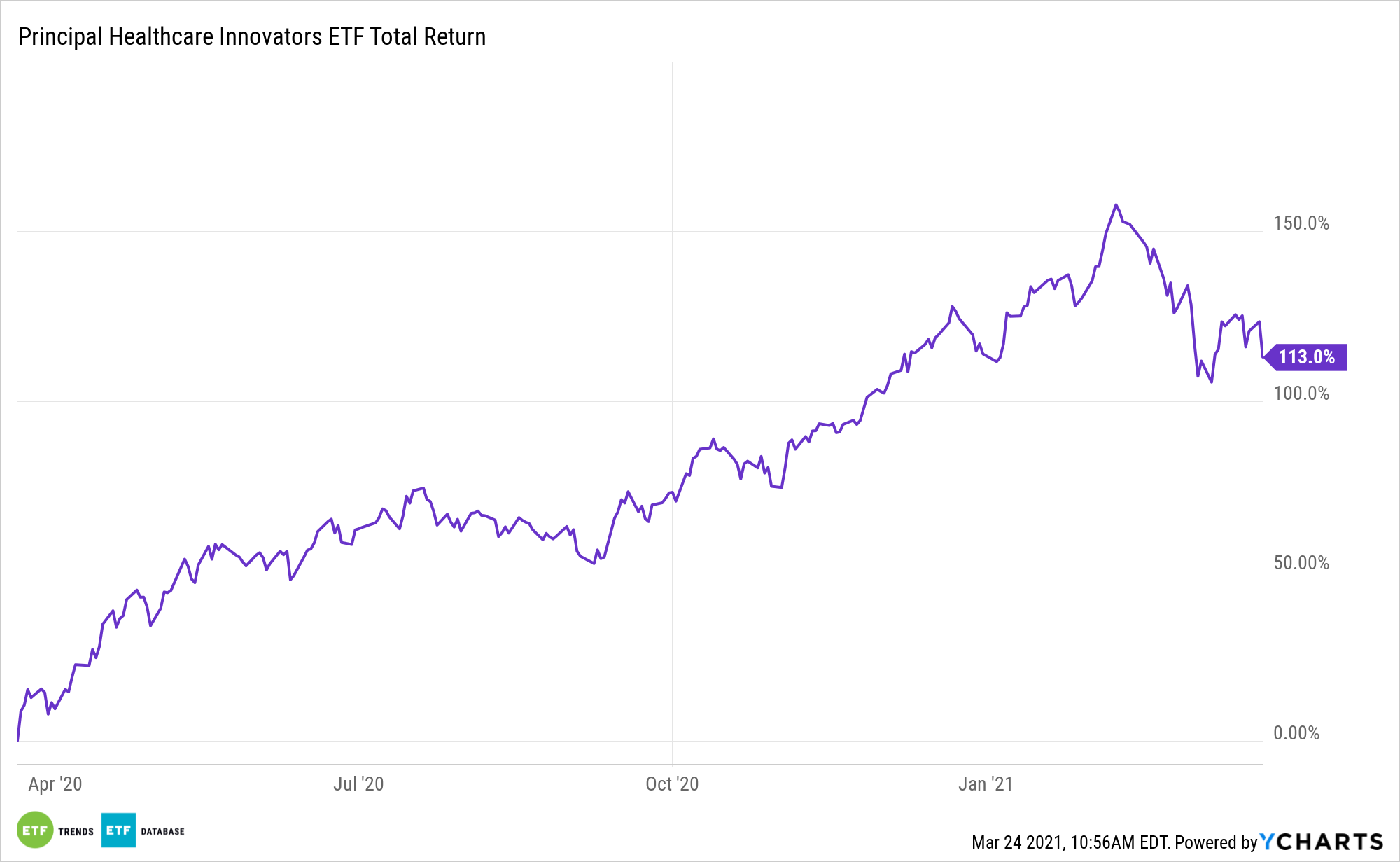When it comes to innovation, healthcare is a sector-level leader, especially when the Principal Healthcare Innovators Index ETF (BTEC) taps into that trend.
BTEC seeks to provide investment results that closely correspond, before expenses, to the performance of the Nasdaq Healthcare Innovators Index.
Under normal circumstances, the fund invests at least 80% of its net assets, plus any borrowings for investment purposes, in equity securities of companies that compose the index at the time of purchase. The index uses a quantitative model designed to identify equity securities in the Nasdaq US Benchmark Index (including growth and value stock) that are small and medium capitalization U.S. healthcare companies.
Artificial intelligence (AI) is seen driving a new breed of innovation in the healthcare arena.
“Digital tools can help. In just one example, clinicians around the world are using artificial intelligence auto-contouring tech to automate and optimize the time-consuming task of pinpointing organs at risk. Researchers at one cancer center in New Mexico said that this AI saves them more than seven hours a week, and that number is rising,” writes Jean Neheme in a commentary article for Barron’s.

Healthcare Plus AI Equals?
Healthcare technology has come to the fore, offering various innovations to combat the coronavirus. This can only help fuel healthcare technology ETFs, which are moving forward from preventative medicine to treatment.
“AI has other overwhelmingly positive implications for healthcare, from making logistics more efficient, to accelerating drug development and ultimately improving diagnosis and treatment. Improved data collection and analytics alone would have a tremendous impact on healthcare administration, while a wealth of data shows that in certain key areas, AI can process and support the recognition of abnormalities such as rare hereditary diseases,” according to Neheme.
The future of healthcare looks more technologically driven as the industry shifts into the digital age from old analog equipment, developing early detection and prevention with robotics or artificial assisted technicians. For example, ROBO Global pointed out that we may see key applications of artificial intelligence in healthcare, such as AI-powered diagnostics, surgical robots, genomic analysis, new drug discovery, streamlined clinical trials, and smart monitoring devices. AI in health care could balloon to a $6.6 billion industry by 2021 from only $600 million back in 2014. Funding has almost doubled to $2.3 billion in 2018, compared to $1.2 billion in 2017.
For more news, information, and strategy, visit the Nasdaq Portfolio Solutions Channel.
The opinions and forecasts expressed herein are solely those of Tom Lydon, and may not actually come to pass. Information on this site should not be used or construed as an offer to sell, a solicitation of an offer to buy, or a recommendation for any product.

